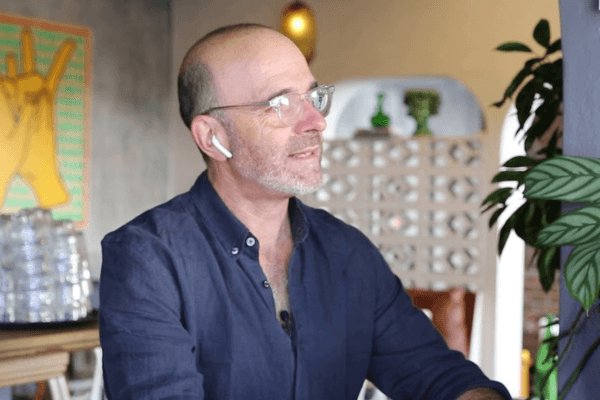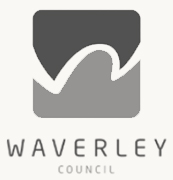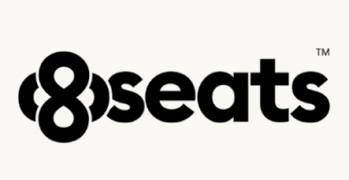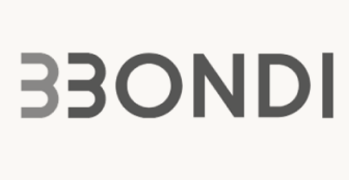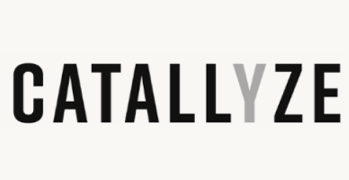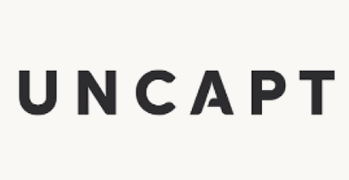Michael Koslowski is a journalist turned startup founder. His career began at the Sydney Morning Herald where he spent 10+ years and went on to be a deputy editor and the head of sport. He was exposed to the world of business as a publisher at ACP Magazines.
As technology and the great financial crisis heavily began to affect journalism and the media industry – he shifted towards video production where he founded WeEditFast – a cloud B2B video editing service. Then he founded Studio Bucket – a video workflow platform for teams.
In this interview he discusses:
- His journey from journalism to founding a video tech startup
- How journalism, photography, video has been disrupted by technology, COVID
- How love brought him to Bondi and what he loves about Bondi
- How we nurture creatives and support them given the race to the bottom in this industry
For more details – the transcript can be found below the video.
Transcript
Ross Dawson:
Michael, wonderful to have you on Bondi Innovators.
Michael Koslowski:
Very nice to be here.
Ross Dawson:
So, what’s your story?
Michael Koslowski:
Okay. I began life as a journalist, spent a good decade at the Sydney Morning Herald in politics and sport. Ended up as the sport editor, which was more politics and sport than there were any politics. Moved across with a bunch of us then to Kerry Packer’s magazine stable ACP, which was a different culture, different experience, but it was like doing an MBA in business and media, really. It was a phenomenal business machine, which I wasn’t thinking of startup in those days, but I’m very glad I did that. Fairfax gives you phenomenal editorial from the heart. Independence, quality. ACP gave business savvy, numbers, discipline. And then of course the GFC happened and Kerry Packer died and James Packer sold and private equity took over.
Ross Dawson:
Indeed.
Michael Koslowski:
And that was another time for… I was a publisher at ACP with about 20 magazines to look after and that was ugly. Some very good people, but the business fell off a cliff between the internet and the GFC. It was just a case of brutally closing magazine. That was not what I signed up for. So I famously put myself in one of the restructures and said, “You don’t need a publisher anymore, for these 20 magazines, you just need a bean counter to massage the decline.” Which was sad, but true. So I escaped. Great, great seven years there. Fantastic. And a lot of good people, a lot of good skills, but then it was time to do my own thing.
Michael Koslowski:
Having had the security of a big media corporation for the previous 20 years and video was the space I wanted to get into and a mutual contact of ours reunited me with Ross Greenwood, from channel nine, who was looking at doing a separate video play. So we got together, he wrote a check and I put my sweat in. And we started up, what at first was a content play. And then in 2013 content wasn’t easy because no one was paying for it at all. We had content on Qantas flights, short form video content. It was going very well, but we were not… I wouldn’t make any money. And that’s the first lesson, first brutal lesson of startup world. How’re you paying your bills. Best idea, best quality content as a journalist, I loved the content.
Michael Koslowski:
We loved the content. Consumers loved the content. There was no model at that stage for funding it. So at the same time, a few of our old media contacts started saying, “Could you just edit something for us? Because our in house teams are too busy and we need it up tomorrow.” So we quickly edited some video for them to help pay the rent. And then I thought I could possibly scale this. So with the rise of companies and organizations producing their own content, we thought, “Let’s do an editing service. So we brainstormed it and Ross said, “Well, I don’t understand it. That sounds good. But you’d better speaking to a…” I said, “We’ve got to find a developer, Ross.” We’re journalists, we can’t do this. So on his radio show at the time he’d had a young kid who had built Stayz, the holiday combination site.
Ross Dawson:
Yep.
Michael Koslowski:
And he had sold it famously as a 23 year old to Fairfax and pocketed many millions of dollars. And Ross said, “I don’t understand half of what he said. I’ve had him on the radio show. Speak to him.” So I just skyped him in San Francisco where he was doing another startup with his brothers, Chris Sharkey. And between talking code and software and cricket, he said, in the end, I was after someone to build it back here for us. He said, “Look, I love it. Let me have a play with it. And you can get some people to help you, but I’ll come up with something.”
Michael Koslowski:
And what I loved about Stayz, with what he did was, it was the early days of the internet. It wasn’t sexy, but it was pragmatic. Holiday home, geography, calendar, book it, see some photos, done. It did everything in three or four steps and transactional and you got it done. And that’s what I loved about him. He got that very early on, particularly the geography and the SEO. And he knew how to build robust software, which again, as a content guy, you can’t have your tech failing. It’s got to work. And video is big and ugly. It’s not easy with tech. So we got on board, we built WeEditFast. And we had some big media clients and we had some big corporate clients like Westpac and others.
Michael Koslowski:
And then a couple of years in, we were going well, but it was a bit of a race to the bottom, with talent, as it is around the world. The rise of fiber where desperate people will do things for $5. We couldn’t compete with that in Bondi, certainly Australia, with those rates. We can compete on a quality level, our work was better because we were more experienced and we never missed a deadline. But if you are a cash strapped business and you just wanted something done for $5 and someone in other country is willing to do it, why wouldn’t you? So at the same time, Westpac were the catalyst. They came to us and said, “Don’t take this the wrong way. We love your editing service and you get us out of a pickle often overnight or on weekends when we need something done urgently.”
Michael Koslowski:
But we’ve got half a dozen people in our internal creative services team that do most of our work. You’re an overflow service for us. But we really need your platform because we’ve got links being lost in hightail and We transfer and Dropbox. People emailing us stuff. It’s a nightmare. We can’t find any files for the last six months. We like the way you project manage video on your platform. So that was another skype conversation with Chris. I said, “Chris, I think white label might be the way. Because it was the rise of SASS.” He said, “It is. That’s it.” So based on everything we’d learnt from WeEditFast being a core client of the software, we built out the white label version and then rolled it out. And at the time the banks were getting belted as they should have been for everything that was going on.
Michael Koslowski:
But I’ve got to say that Westpac creative services team were phenomenally supportive of a piss-end little start-up. They knew what we were doing. They loved what we were doing, but they could have gone out and got an off the shelf solution, paid a lot of money and got consultants. They backed a startup and said, “We like what you’re doing. As long as you can handle our demands.” And their demands are considerable, but they were fantastic. How supportive, they gave phenomenal product beta feedback. And they were the target client. We knew if we can handle the size of that organization and the demands… They produce a couple hundred videos a month and mostly for internal use because internal video is a rising beast.
Michael Koslowski:
Then you move into COVID. And the staggering thing about COVID is that already with YouTube, quality of videos has been declining. There’s vertical videos showing up, there’s self shot stuff. The audience doesn’t really care, which for a journalist is disappointing. But there’s the reality of… Same in journalism. Sub-editors have almost disappeared. Photographers have almost disappeared. It’s heart wrenching because the quality of the work they do, a lot of the audience either doesn’t realize or doesn’t really care about the difference in quality, which I’m hoping will turn around for those organizations. But COVID saw the rise, saw ministers of the crown and CEO’s appearing on ABC news down a crappy Skype line, looking down on their laptops with earphones on, with terrible lighting, terrible backgrounds, terrible everything.
Michael Koslowski:
It never would have made broadcast television. Suddenly it’s making broadcast television. And guess what? The audience do not care, as long as they can hear it. It’s about the message. It’s about the authenticity. It’s about what they’re saying. So that dubbed out into features we’d been building in beta around self recording on our software platform called Studio Bucket. So we’ve madly been paddling like a duck to get that up to speed because the demand is there. And we had another corporate client who was interested in testing us out before Christmas. And then they said, “We’re very busy at the moment. We’ll come back to you March, April.”
Michael Koslowski:
And just after COVID hit, I get a phone call on my mobile, which I assumed was spam. And it was corporate affairs from that corporation, “You mentioned that you were going to be able to do self record. Can you do that?” I said, “Yes. We’ve just got to in private beta.” “Can we book our CEO in for tomorrow at midday?” Now, if you know corporate lead times, big enterprise lead times, nothing happens like that. They test you out. I said, “Would you like to test out the product first?” “Well, yes. It works, doesn’t it?” I said, “Yes it does but I’d be more comfortable if you tested it.” “Okay, we’ll do a quick test, but otherwise midday tomorrow?” Fine. So the CEO recorded a company-wide… They’re in Australia, overseas.
Michael Koslowski:
A company wide announcement went for about seven minutes. And in that he says, “Here I am, we’ve got to adapt to change. And here I am recording from my lounge room.” And he was there with his laptop recording straight to Studio Bucket. Corporate comms reviewed it, gave us the edits they wanted to and we put their branding on. It was done that afternoon, put out to the entire company. So the opportunities are staggering. And there we were as a startup pivoting pre COVID, and then pivoting into COVID. And that’s where the journey’s got us now.
Ross Dawson:
Fantastic. So what are your top priorities right now?
Michael Koslowski:
Scale. So we’re conservative. We’re not 20 somethings. We’re middle-aged somethings. So we don’t want to lose our money or anyone else’s money. We’re comfortable now that our model works and it’s good. It’s robust. So now it is about getting the message out, which again, for an ex journalist, the marketing and sales are horrendous, absolutely horrendous. So we’ll find people who can help us and we’ll do our best. But we know we’ve got a great product and that’s where we’ve started from.
Ross Dawson:
Fantastic. So why do you choose Bondi?
Michael Koslowski:
I chose Bondi initially because of love, not of Bondi, but because of a partner. 20 years old, so three decades ago, and I met a girl who had lived in about 19 different places in Bondi as a child of a single parent, around Bondi in that era. And I came across and there were a lot of buildings, a lot of people, but it hooks you. And once it hooks you, it’s a phenomenal place, especially Monday to Friday. I couldn’t think of a better place to, if you had to be locked down, obviously you’d be locked down. But also for startups. If you can get the technology right, which for a long time, without NBN, it was appalling. But NBN’s here now. Things like GoWork At Bondi are long overdue. If we can get all that happening, it’s a staggering place to live and work.
Ross Dawson:
So, glad. Wonderful you’re doing this scalable startup out of Bondi. We need a lot more of that. So what do you think the potential for Bondi is in terms of innovation and startups and entrepreneurship and how do we make it happen?
Michael Koslowski:
I think it’s got a natural initial advantage because of the type of personalities that are attracted to Bondi.
Ross Dawson:
Exactly.
Michael Koslowski:
So there’s a lot of creative people here and it’s about how do you harness that creativity and that talent and what we find even with our creatives… We’ve got a very soft spot for creatives, because that’s our history. The stereotype I’d say is that creatives are fantastic at creativity and they’re shithouse at money and finances. And so you’ve got to look after them. Because of there’s a bitter race to the bottom with talent, often good creatives are getting abused because of that. So you’ve got to nurture and look after creatives. And at the same time, we get phenomenal loyalty and dedication from good creatives, if you look after them. It’s a mutual, it’s a much nicer way to work and live anyway. Especially if you’re in one geo area, you’re living and working together, look after each other.
Ross Dawson:
Exactly.
Michael Koslowski:
And COVID’s taught us that too. So I think that’s tapping into Bondi’s creativity, giving it, I’d say, some robustness and some discipline and some structure. And with some of our creatives, between Ross and I, we’ve even helped them with their personal organization and finance and lives, because they’ve been a nightmare. And so we’ve tried to work with them as mates and say, “If you’ve got that much in your credit card, your life is lurching from one disaster to another. Let’s work on that.” So looking after creatives and getting the best out of them, but also giving them license to be flexible, which is what they naturally want to do. Don’t make them work nine to five and come into the city and sit on a bus and sit on a train and sit in a cubicle and attend corporate meetings. You’ve just lost two thirds of the best creatives.
Ross Dawson:
I think that’s a lot of the case for work out of Bondi. So studiobucket.com is the-
Michael Koslowski:
studiobucket.com. So we are a video project management platform. Self recording is the big rise. And we’re bringing in a teleprompter in a few weeks so you can literally create a project link, send it to any of your people, get them to record a message, get 50 people around the world to record content. Gets captured by the platform and you can then get someone to edit it. Either WeEditFast or your own creatives, any creative, anywhere in the planet. And you can project manage the whole business on Studio Bucket. Publish it from there and then you store it all, including all the assets. You never lose them anymore.
Ross Dawson:
Awesome. Fantastic story. Thanks so much for being on the program, Michael.
Michael Koslowski:
Thanks for having me Ross. Cheers.

